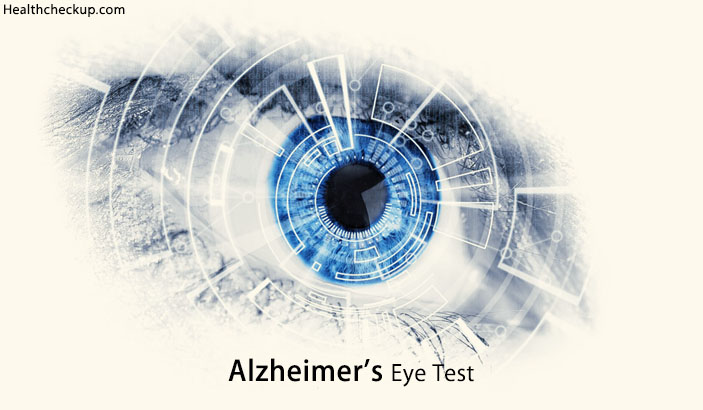Alzheimer’s is a neurodegenerative disease that affects the brain cells and causes an individual to lose memory and thinking capacity. The disease was discovered by Alois Alzheimer who had a patient with memory problems that died. After her death, Alois performed a postmortem on her brain and discovered defects in the brain matter.
The disease occurs in two forms; Early-onset which affects a person as early as their 30’s and Late-onset, which occurs in individuals from their mid-60s onwards. However, the Early Onset Alzheimer’s is extremely rare.
Based on recent studies, a simple alzheimer’s eye test could diagnose early-stage Alzheimer’s disease.
What Causes Alzheimer’s?
Alzheimer’s is a genetic disease. It is caused by abnormalities in the formation of apolipoprotein E. This protein forms fragments that would normally be dissolved in a normal brain but for a person with Alzheimer’s the protein forms plaques which build on the brain as well as tangled neurofibrillary which are formed in the brain matter. This degeneration eventually leads to shrinkage of the brain and dysfunction. The main cause of memory loss is because the damage usually starts at the hippocampus in the brain, which is responsible for memory storage.
Symptoms Of Alzheimer’s
Alzheimer’s occurs in several stages. However, there are symptoms that a person can look out for if they suspect the occurrence of the disease.
- Memory problems are one of the major symptoms of the disease and maybe the most noticeable one. This usually presents a short term memory loss.
- A person may also experience a problem when trying to process thought and also understanding abstract concepts may become difficult.
- People with Alzheimer’s also tend to lose track of time and may not be able to tell where they are or how they got there, or what time or what day it is.
- Another symptom with dementia is irritability. They tend to be quite irritable and short-tempered. They may also experience depression and extreme mood swings.
- There is also a tendency of not being able to talk coherently at times or inability to connect words with objects or actions. There are also instances of paranoia which may seem out of character for the affected individual.
How Is Alzheimer’s Diagnosed?
Alzheimer’s diagnosis is normally carried out to test various functionalities. One of the tests is to test cognitive functions such as memory, problem-solving, and the ability to perform simple tasks. There are also brain scans that are done to check for any abnormalities in the brain. Blood and urine tests are also part of the diagnosis.
Alzheimer’s Eye Test
This is a new non-invasive procedure aimed at providing a diagnosis for Alzheimer’s. According to a study, the eye is used as a way to diagnose defects in the brain since it shares similarities in neural and vascular characteristics. It has been observed that patients who suffer from Alzheimer’s disease also have problems with their vision. More often than not, by the time the symptoms present, the disease has progressed; this method is seen to be more effective in detecting the disease early.
How is the eye test carried out?
The tests are carried out with high-resolution technology, also referred to as Optical Coherence Tomography(OCT) that is able to clearly see blood vessels that are not visible during a regular eye check-up.
Interpretations of Alzheimer’s Eye Test
It has been observed that there are differences in the blood vessels in the retina of Alzheimer’s patients compared to non-Alzheimer individuals. The main cause of Alzheimer is polymorphism in the proteins present in the brain, causing abnormal formations in the brain matter that results in the malfunction of the brain.
Since the retina is an extension of the brain, the same defects that are seen on the brain matter are the ones that extend to the retina and in turn, affect vision. There is also reduced blood flow to the retina due to changes in arterial dilation and constriction. These defects can be observed even before other dementia symptoms occur.
[Also Read : Brain Hypoxia In The Brain]
Who Should Take This Test?
Generally, anyone who is experiencing some of the symptoms of Alzheimer’s can undergo this simple Alzheimer’s eye test. However, there are people who are predisposed to the disease, and since the procedure can detect it before symptoms occur, it would be recommended for such people.
These Candidates Include
- Those that have members of their families that have been diagnosed in the past.
- Persons that have experienced head trauma.
- Those that have advanced in age.
- Diabetes patients are also at high risk. This is specifically for those with Type 2 diabetes.
- Others are people that suffer from Down’s Syndrome as it is believed that the diseases have similar causes.
- Women are also believed to be more at risk of dementia than men.
Doctor, author and fitness enthusiast, Ahmed Zayed, MD, is a surgery resident with a passion for helping people live a happy healthy life. He is the author of numerous health-related books and contributor to several medicine, health and wellbeing websites.








